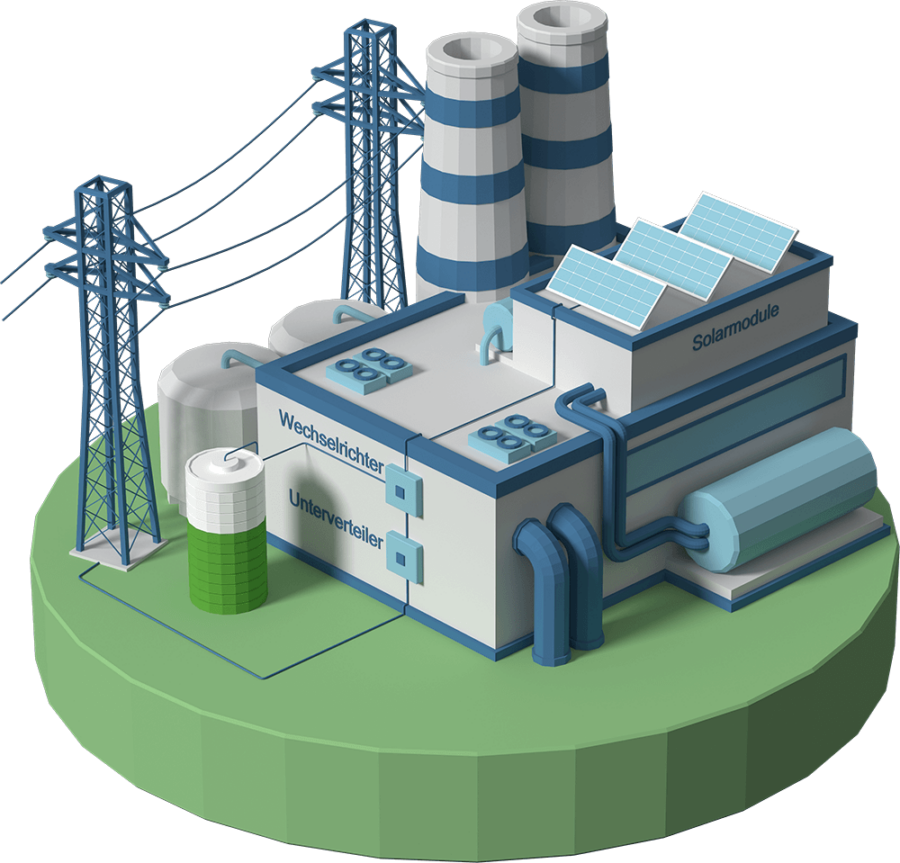
Photovolatic – Business
DC-Link
The AD/C link eliminates the need for AC/DC/AC conversion, reducing overall power losses and improving system efficiency, along with improved reliability as rectifiers and inverters are no longer required.
Grid Systems – With / Without Self-Consumption
Installing a photovoltaic (PV) system on the roof of a business, which is suitable for both self-consumption and direct feed-in to the grid, can offer a number of benefits:
By generating electricity from solar energy and consuming it on-site, the company can meet part of its electricity needs from the grid. This reduces the amount of electricity purchased, resulting in lower energy bills. The excess electricity fed into the grid can also generate revenue via net-metering or feed-in tariffs, further offsetting the costs.
Generating and using solar power on site provides a degree of energy independence. The company is less dependent on the electricity grid during the day and therefore less vulnerable to fluctuating energy prices and potential grid disturbances. This can increase energy security and stability.
Solar energy is a clean and renewable energy source that helps reduce greenhouse gas emissions and dependence on fossil fuels. By using solar energy, the company can reduce its carbon footprint and demonstrate its commitment to environmental sustainability, which is in line with customers’ wishes and society’s expectations.
Solar energy has a predictable and stable cost structure over the lifetime of the system. By investing in a PV system, the company can hedge against rising electricity prices and achieve long-term cost savings. This stability improves financial planning and budgeting.
Going solar demonstrates the company’s commitment to sustainable practices, renewable energy and environmental responsibility. This can improve the company’s brand image, attract environmentally conscious customers and set it apart from the competition. It can also contribute to positive public relations and community engagement.
Many governments offer incentives such as tax credits, grants and subsidies to encourage the adoption of solar energy. Taking advantage of these incentives can significantly reduce the upfront costs of installing a PV system and improve the return on investment.
By feeding surplus electricity back into the grid, companies with PV installations contribute to grid stability and support the overall power supply. In times of high demand or emergency, the surplus solar power can be used to meet municipal energy needs, increasing grid stability.
Installing a PV system provides educational opportunities for employees, customers and the community. It raises awareness of renewable energy, sustainability and the benefits of solar energy. Businesses can use their PV systems to raise awareness and inspire others to adopt clean energy solutions.
By combining self-consumption and direct feed-in to the grid, companies can maximise the benefits of their PV systems. They can reduce operating costs, increase energy independence, promote environmental sustainability and contribute to a more resilient and sustainable energy future.
